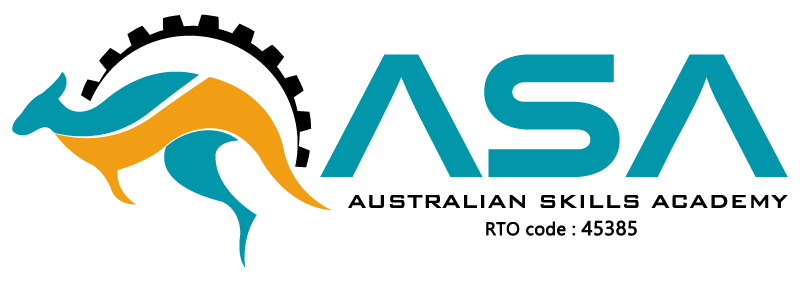BSB50420 | Diploma of Leadership and Management
$$
About this course
BSB50420 – Diploma of Leadership and Management
This qualification reflects the role of individuals who influence others to achieve organisational goals, to add value to management practices.
Typically, people in these roles will combine an informed perspective of the specific work requirements with their understanding of human nature and communication. They will display initiative and judgement in planning, organising, implementing and monitoring their own workload and the workload of others.
They plan, design, apply and evaluate solutions to unpredictable problems, and identify, analyse and synthesise information from a variety of sources.
Disclaimer
The RTO does not and never will guarantee (either implicitly or explicitly) that the candidate will gain employment because of their study.
The RTO is the sole training provider.
No licensing, legislative or certification requirements apply to this qualification at the time of publication.
| Download Brochure | Size |
|---|---|
| Leadership and Management Courses.pdf | 191 KB |
Course Overview
BSB50420 Course Outline
Total number of units = 12
4 core units plus
8 elective units, of which:
-
- 4 elective units must be selected from Group A
- up to 4 may be additional units from Group A or Group B
- if not listed below, up to 2 electives may be from Diploma or above in the Business Services Training Package
- if not listed below, 1 elective unit may be from any currently endorsed Training Package or accredited course at Diploma level.
Elective units must be relevant to the work environment and the qualification, maintain the integrity of the AQF alignment and contribute to a valid, industry-supported vocational outcome.
Entry requirement
There are no entry requirements for this qualification. However, having completed year 12, hold a Certificate IV or have work experience in the field is recommended as a minimum requirement to study at the diploma level.
Australian Skills Academy Pty. Ltd. Uses the Australian Core Skills Framework (ACSF) to identify the learner’s Language, Literacy and Numeracy (LLN) levels upon enrolment.
Pathway From the Qualification
After achieving this qualification, candidates may progress to higher-level qualifications.
Credit/Advance Standing/RPL
Our college recognises the skills and knowledge that students may have gained through previous studies, workplace and life experience. They may be entitled to gain recognition of prior learning before or after commencing the course that may exempt them from attending one or more units. Students who believe they already have the skills and knowledge required to demonstrate competency can request a copy of the RPL application form. Students are provided with information regarding the evidence required for each qualification and must provide valid, sufficient, current and authentic evidence to demonstrate competency. RPL is based on a portfolio and interview approach, where students accept the main responsibility for identifying, gathering and submitting evidence about their achievement of the competencies. The RPL process may involve a practical demonstration assessment too.
Work placement and Industry Membership
No work placement and industry membership providers for this course at this time.
Additional supports and services
Additional support is available for students with learning difficulties and disabilities. The College welcomes contact with parents/guardians of students who are under 18.
Possible Career Outcome
- Senior Manager (Public Sector)
- Business Development Manager
- Information Services Manager
- Business Manager
- Distribution Centre Manager
- Legal Practice Manager
- Production Manager
- Operations Manager
- Public Sector Manager
- Office Manager
Payment Options
We have a number of options to allow you to select a payment method best suitable to your financial situation. Please refer to course fee section get the current fee structure for this course.
Method of Payment: Online, Bank Transfer, CC over the Phone, Bank Draft
Please mention your preferred method of payment in your application form and our staff will confirm your payment and any associated cost for your course.
Section
Syllabus
This qualification reflects the role of individuals who influence others to achieve organisational goals, to add value to management practices.
CORE UNIT | BSBCMM511 - Communicate with influence
This unit describes the skills and knowledge required to present and negotiate persuasively, lead and participate in meetings and make presentations to customers, clients and other key stakeholders. It applies to managers and leaders who are required to identify, analyse, synthesise and act on information from a range of sources, and who deal with unpredictable problems as part of their job role. They use initiative and judgement to organise the work of self and others and plan, evaluate and co-ordinate the work of teams.
CORE UNIT | BSBOPS502 -Manage business operational plans
This unit describes the skills and knowledge required to develop and monitor the implementation of the operational plan to provide efficient and effective workplace practices within the organisation’s productivity and profitability plans.
CORE UNIT | BSBCRT511 - Develop critical thinking in others
This unit describes the skills and knowledge required to develop critical and creative thinking skills in others within a workplace context. The unit applies to individuals who are developing and coaching others, for whom critical thinking skills (including analysis, synthesis, and evaluation) are an important part of their job roles. This unit applies to individuals who are typically responsible for leading teams.
CORE UNIT | BSBPEF502 - Develop and use emotional intelligence
This unit covers the development and use of emotional intelligence to increase self-awareness, self-management, social awareness and relationship management in the context of the workplace.
CORE UNIT | BSBLDR523 - Lead and manage effective workplace relationships
This unit describes the skills and knowledge required to lead and manage effective workplace relationships.
CORE UNIT | BSBTWK502 - manage team effectiveness
This unit describes the skills and knowledge required to lead teams in the workplace and to actively engage with the management of the organisation.
ELECTIVE | BSBOPS505 - Manage organisational customer service
This unit describes the skills and knowledge required to lead teams in the workplace and to actively engage with the management of the organisation.
ELECTIVE | BSBLDR522 - Manage people performance
This unit describes the skills and knowledge required to undertake financial management within a work team in an organisation. It includes planning and implementing financial management approaches, supporting team members whose role involves aspects of financial operations, monitoring and controlling finances and reviewing and evaluating the effectiveness of financial management processes.
ELECTIVE | BSBSTR502 - Facilitate continuous improvement
This unit describes the skills and knowledge required to lead and manage continuous improvement systems and processes. Particular emphasis is on the development of systems and the analysis of information to monitor and adjust performance strategies, and to manage opportunities for further improvements.
ELECTIVE | BSBOPS504 - Manage risk
This unit describes skills and knowledge required to manage risks in a range of contexts across an organisation or for a specific business unit or area in any industry setting.
ELECTIVE | BSBADM502 - Manage meetings
This unit describes the skills and knowledge required to manage a range of meetings including overseeing the meeting preparation processes, chairing meetings, organising the minutes and reporting meeting outcomes.
ELECTIVE | BSBHRM523 - Coordinate the learning and development of teams and individuals
This unit describes the skills and knowledge required to coordinate the learning and development of teams and individuals. Particular emphasis is on the coordination of strategies to facilitate and promote learning and to monitor and improve learning performance. The unit applies to individuals who have a role in coordinating the development of a learning environment in which work and learning come together. At this level work will normally be carried out within complex and diverse methods and procedures, which require the exercise of considerable discretion and judgement, using a range of problem solving and decision-making strategies.





